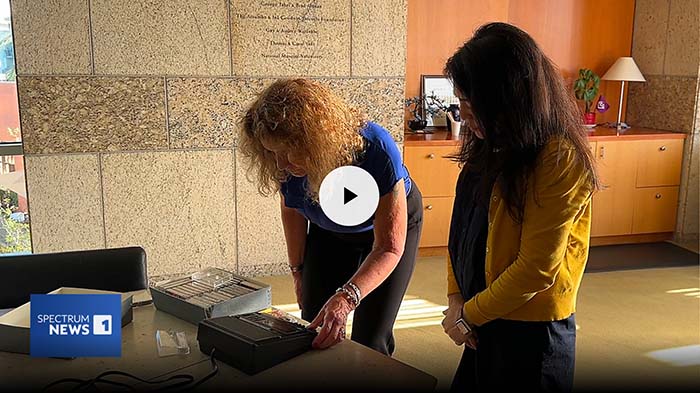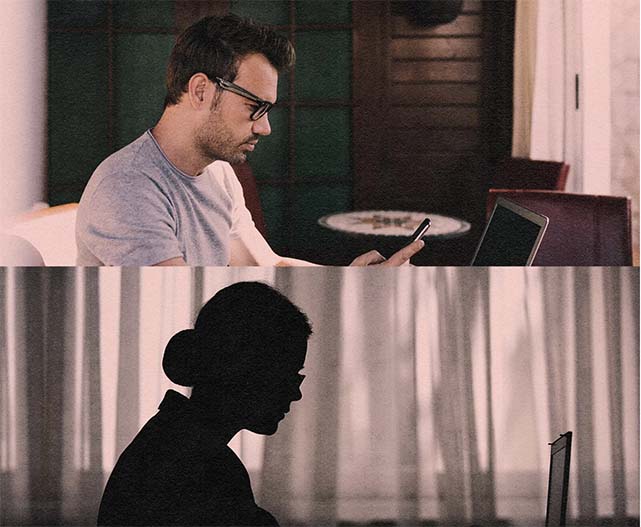
7 Habits Of Couples In Truly Equal Partnerships, According To Psychology
Is the future of true love rooted in fairness? Research says yes.
Regina Lark, Ph.D.
Written on Sept 6, 2024

Given the way society has changed, you might be surprised to learn women continue to shoulder the bulk of household labor within every age demographic and community in America. This is true among hourly earners and salaried professionals as well as C-Suite executives, judges, and athletes. Read more…

Prepare To Be The Best Wife By Taking These 3 Little Steps
Three date nights designed to help you build the strongest partnership possible.
Regina Lark, Ph.D.
Written on Jul 17, 2024

Yay!! You’re getting married! You could not be happier, now you have a lot to do, and much to plan — flowers and dresses and rings and things — you know the drill. Your new life as a wife is just a few months ahead, and there is excitement in the air.
As you prep for the “The Big Day,” consider arranging three date nights to prepare to be the best wife on the planet.
Read more…

‘Good enough, not perfect’: How to manage the emotional labor of being ‘Mama Claus’
Emilee Coblentz | USA TODAY
The holidays are here. For children, the calendar turns and the joy just appears.
But there are silent sufferers behind all of that Christmas cheer: The mothers, the caregivers, those “chosen” for the work are left to it – “Mama Clauses” producing all of the magic, because they do it better anyway, right?
“Usually, we delegate to the person who’s suited for the job,” said Dr. Regina Lark, who has a doctorate in women’s history. “It’s hardly fair, or equitable.” Read more…

Collection of Research on Japanese War Brides
Now at Japanese American National Museum

October 23, 2023 – LOS ANGELES – The Japanese American National Museum (JANM) has received a donation from Dr. Regina Lark of her collection of interviews from her University of Southern California dissertation. Her dissertation focused on the relationships between Japanese women and American soldiers who met and married during the US Occupation of Japan. Read more…

Keep Fighting With Your Partner About Chores? Here’s What To Do About It
…The problem of household labor—and the emotional labor that comes with it
According to Regina Lark, Ph.D., organization expert and author of Emotional Labor: Why a Woman’s Work Is Never Done and What To Do About It, chores can become a source of conflict in relationships for a number of reasons.
For one thing, especially if you’re in a cis-het relationship, traditional gender roles around “women’s work” are still incredibly pervasive, with many of us subconsciously holding a belief that it’s the woman’s job in the relationship to manage the household—cooking, cleaning, taking care of the kids, keeping track of everyone’s calendars, the list goes on…and on and on. Read more…

The One Conversation That Always Turns Into A Fight (& How To Make Peace)
Radical relationship problems demand radical solutions.
By Regina Lark, Ph.D. — Written on Apr 12, 2023
In my career as a professional organizer, I am privy to the ways married couples speak and think differently from each other regarding the arduous work of what I like to call, “household management”. The type that some people might call “women’s work” — which is based on the historical myth that “women are just better at it.” Read more…

In Late-Career Pivots, 3 Traits Successful Career Changers Share
Caroline Ceniza-Levine Senior Contributor
I help people make a great living doing work they love.
If you have 20 or more years invested in one line of work, you have a specific set of skills and expertise, which you might think doesn’t translate elsewhere. Besides, people know you for being in a particular industry and/or role, and your own network is more likely stocked with people from the field you want to leave. Finally, you have less time in the latter arc of your career to make a change. Is it ever too late to pivot your career?
I once coached a marketing executive who had 20 years in financial services before landing a top operations job for a retirement community. Vickey Barron, currently a top New York City real estate agent, spent 20 years in health care on the West Coast. Dr, Regina Lark was 50 years old and laid off from a job in academia, when she pivoted to building, A Clear Path, a professional organization business that now has 13 employees and seven figures in revenue. Read more…

How to end the unfairness of invisible work

Years ago during an offsite, a white male colleague remarked that he didn’t have time to manage his employees to the extent they needed managing.
“You must realize that has a spillover effect on the rest of us,” I said. “Your team ends up seeking other leaders to help them navigate this place—and to better understand you.”
So-called invisible work—a term coined by sociologist Arlene Kaplan Daniels to describe work that goes unpaid, unacknowledged, and thus, unregulated—abounds in the workplace, especially when we look back on our careers in hindsight. Once you know, you cannot stop seeing such labor everywhere. It’s especially egregious for women and people of color, who pick up the slack for organizations that come to rest greatly on our efforts.
Recognize the labor
One of the first steps in fixing the problem of invisible work is to, well, make it visible. Regina Lark’s recent TED talk implores us to stop calling anything “women’s” work. “Work is work,” she says. In an interview with me, she offered this checklist with examples of how women and people of color take on extra burdens:
Read more…

Dr. Regina Lark is a professional speaker and entrepreneur who holds a Ph.D in Women’s History from the University of Southern California. Her work in that field informs her third and most recent book, “Emotional Labor: Why a Woman’s Work Is Never Done and What to Do About It.” Read more…

There’s No Such Thing as ‘Women’s Work’
8/31/2023 by REGINA LARK
“There’s nothing inherently ‘womanly’ about ‘women’s work.’ Work is work, whether it’s done in the office or the home.”
When it comes to gender equity at home, many households are depressingly unequal. We raise the bar of household equity in three ways:
- by making visible, the invisible work of emotional labor.
- by anticipating the emotional labor lifecycle.
- by embracing the art and practice of radical delegation.
When we commit to these ideals, men will recognize their full potential in the household, and women will realize their full potential in the paid workplace. Read more…


